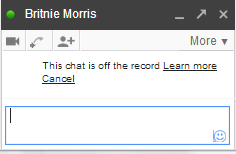Privacy by Design refers to a design of technology that emphasizes privacy as its default setting and is proactive in its approach to building and ensuring privacy throughout the life cycle of data storage.
About twenty years ago, Ann Cavoukian, now Information & Privacy Commissioner of Ontario, Canada, coined the term “Privacy by Design” to address privacy concerns if (ever) law and regulation failed to protect consumer needs. Today, although some technologies are created in adherence to the core principles of Privacy by Design (PbD), many new product developments do not begin implementing privacy on Day 1. If this seemingly practical approach to privacy is, in fact, good practice, then why isn’t everybody doing it?
Some theories:
- Businesses do not fully appreciate consumer needs.
- Alternatively, while businesses do appreciate that default privacy could benefit consumers, businesses calculate that there is no actual demand for it, thus no need to supply.
- Alternatively, we (who no speak legalese) don’t know what’s really going on.
So what exactly is Privacy by Design?

The option to go off the record in GChat is one example of Privacy by Design.
Put simply, PbD is built-in privacy. (A brief summary of the 7 Foundational Principles of Privacy by Design is included at the end of this post.) Dr. Cavoukian, who was recognized as the founder of Privacy by Design by the Best Practices Institute, identified default practices as a preventive solution to address the need for privacy, a need which she had anticipated. So, for example, the option to go “off the record” during a conversation in Google’s Gchat application illustrates PbD. Another example is 2-step security verification, used by companies such as Twitter and Evernote, which protects a user’s account against a third party discovering the user’s log-in information. PbD is not yet ubiquitous, but it is already incorporated into some of the products that many of us use every day. Nonetheless, at least according to the Future of Privacy Forum, a Washington, DC based think tank, businesses often struggle to implement Cavoukian’s principles into practice.
Read More



 Given that trademark registration can be a costly process – filing fees for initial application for registering a single trademark are anywhere from $275 to $375 per class – smart business owners seeking to protect a unique brand will evaluate whether and how to register for a standard character trademark (name only) and/or logo trademarks.
Given that trademark registration can be a costly process – filing fees for initial application for registering a single trademark are anywhere from $275 to $375 per class – smart business owners seeking to protect a unique brand will evaluate whether and how to register for a standard character trademark (name only) and/or logo trademarks.